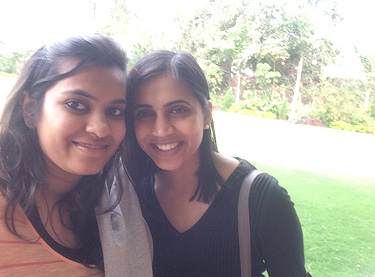
Gujarat, India
Clinical and Social Medicine
"My elective in Gujarat, India, allowed me to observe and study the functions of a health care system different from what I have become accustomed to in the United States. I was fortunate to work with a general surgery team that provided health services in an area where resources are limited. The team works for a hospital system that prides itself on providing care that is affordable and easily accessible to the Gujarati community. By working at this hospital, I was able to gain insight to many social and economic determinants of health.
"On the weekdays, I began my morning by participating in teaching rounds with the attending physician and their junior partners. I was expected to present patients and answer questions regarding their management. I accompanied the doctors to the operating room three to four times a week. I scrubbed into a wide range of surgical cases, from simple appendectomies to complicated vascular procedures. In the afternoon, I also got the opportunity to run outpatient clinic with the junior physicians. Because of my upcoming residency in OB/GYN, I focused my Saturday mornings on a women’s health project. I worked closely with a health professor from a local college. We designed a women’s health seminar open to female students at the college. This seminar discussed a variety of women’s health topics. I found it most rewarding because it was a closed and private group. The college students who attended the seminar were able to freely ask questions. I realized that there was a lack of education regarding several topics such as reproductive health. A lot of these topics are considered taboo in this society, but seminars such as this provide an effective way to raise awareness.
"My experience abroad enabled me to sharpen my clinical reasoning skills without the use of multiple lab and imaging studies. The hospital was well equipped with modern technology; however, there was a heavy emphasis on physical exam findings. The majority of the patient population came from a low socioeconomic status, and the doctors worked very hard to provide appropriate care without relying on too many resources. Additionally, I was exposed to many disease processes that are not as prevalent in the United States, such as tuberculosis and malaria. Because of this, I was able to recognize the severity of these common diseases on a global scale. Because of the language barrier, I initially found it difficult to speak with patients and gain their trust. This became easier over time, and I feel that this experience helped me with my communication skills. The exposure I got from my rotation in India was incredibly valuable to me as a future resident. I was inspired by seeing health care at an international level, and I hope to continue my interest in global health, both during and after residency."